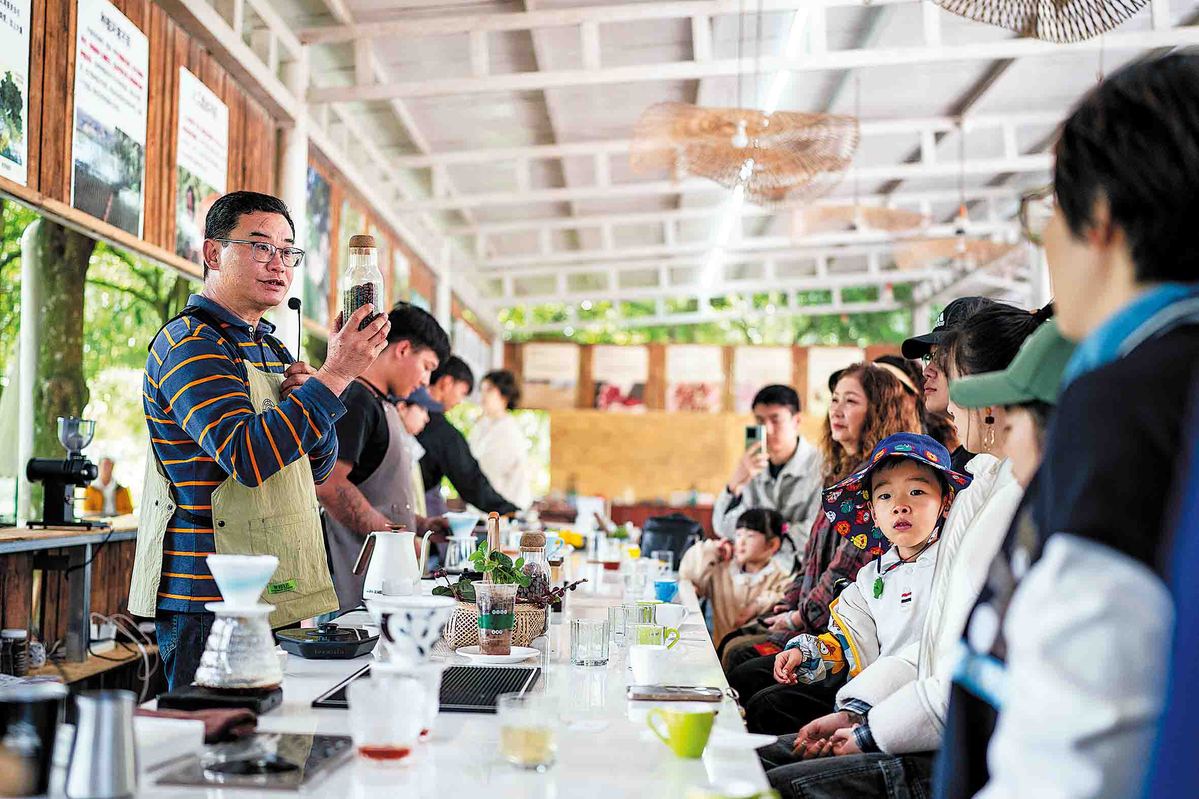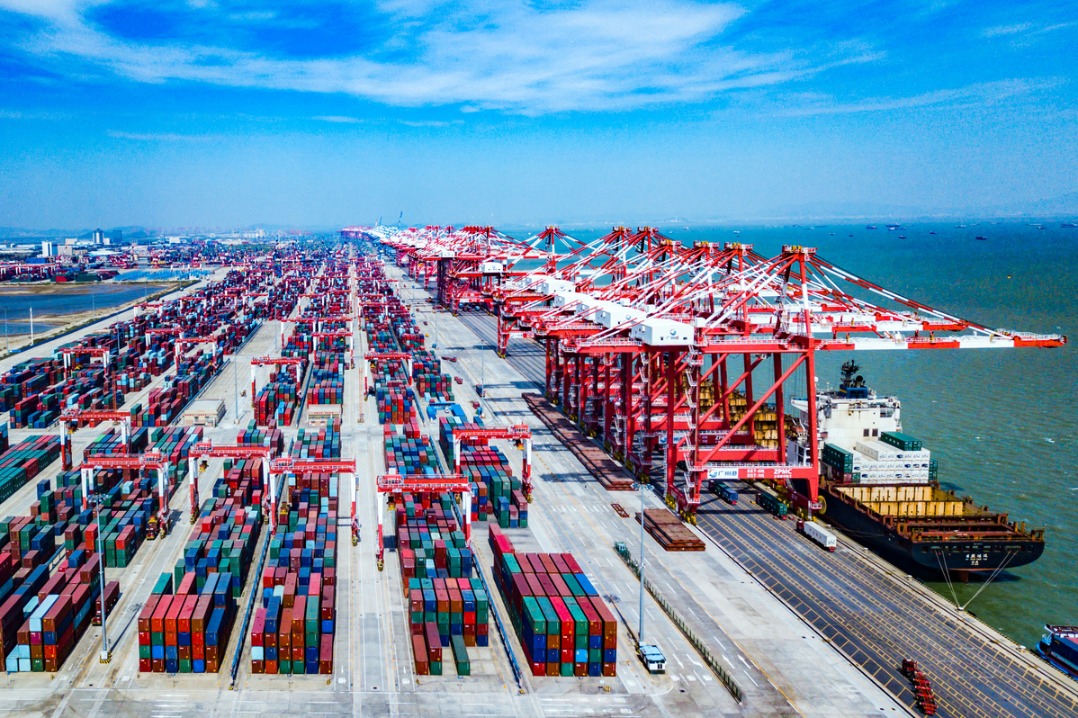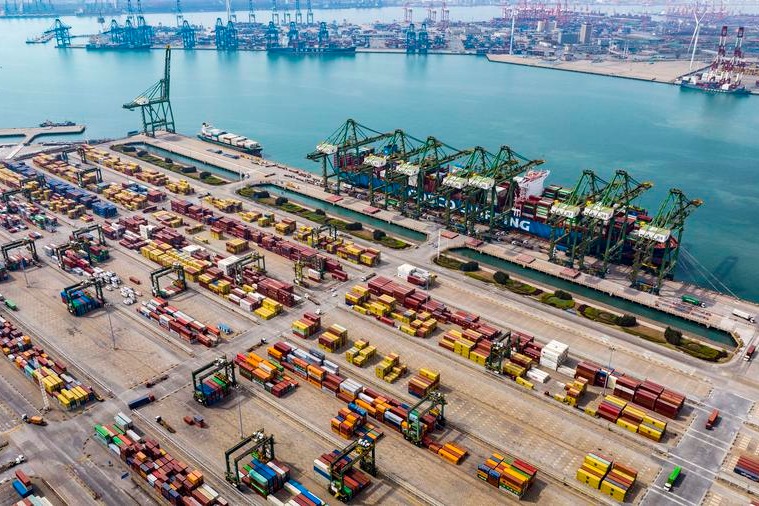Yunnan percolating perky profits for coffee farmers
Whole region's 2024 output hits 146,000 metric tons, up 13% year-on-year


Meanwhile, Pu'er, a city in Yunnan, has been found to be particularly suitable for growing Arabica beans, which feature a less acidic taste, thanks to its ideal climate and fertile soil.
In the 2024-25 production season, the output of green coffee beans in Pu'er is expected to reach 58,000 tons, maintaining a similar level with last year. Based on current market price analysis, the output value is foreseen to become the best year ever since the city began planting coffee beans, according to the projection by the Pu'er tea and coffee industry development center of Yunnan.
Li Jun, deputy director of Simao Customs, a branch of Kunming Customs, said: "We have fully leveraged the role of a national key laboratory for coffee testing in Pu'er, and organized groups of experts to conduct testing on soil, irrigation water, coffee beans and pests at the coffee planting demonstration base in Pu'er."
Aiming to help local coffee bean planters and processors further boost product quality, Kunming Customs has helped local enterprises to tackle problems that they encounter during the planting process, and guide companies to adjust planting density and take regular pests and disease monitoring to improve the stability of quality.
"Based on the test results, more guidance has been provided on the fertilization technology to safeguard the healthy development of the coffee sector in Pu'er and its export business," Li said.
Driven by increasing demand for high-quality beans in the international market, the local government of Pu'er has also been actively guiding planters to strengthen their awareness to cultivate more premium coffee beans and promote the upgrading process.
Now, there are some 270,000 coffee farmers and industry practitioners in Pu'er, and their per capita income has doubled compared to three years ago, the local government said.
Besides coffee planting, Pu'er has developed tourism projects that feature new consumption scenarios. They include coffee estates, coffee-themed commercial complexes, post offices and parks, and the diversified business models of coffee have helped "percolate" to Pu'er's tourism sector.
During the Spring Festival holiday this year, Pu'er received more than 3.25 million tourist visits, up 13.71 percent year-on-year. They spent a total of 3.44 billion yuan, growing 13.21 percent on a yearly basis, the local government said.
China's coffee consumption market has been growing rapidly, and Shanghai owns the largest number of coffee shops in the world. As of the end of 2023, Shanghai had 9,553 coffee shops, according to Business Information of Shanghai, a local market information collector.
Still, there is a significant gap between China's per capita consumption level compared with mature coffee consumption markets such as Japan, South Korea, Europe and the United States, and this certainly creates huge growth potential for China's coffee market, said a report by the World Federation of Chinese Catering Industry.
























